An Irish charity has said aid from countries like Ireland is more important than ever, as the Trump administration has suspended most foreign aid contracts.
Campaigners have said this will leave funding gaps that will devastate countries most vulnerable to climate change.
"Around 50% of aid in Guatemala was coming from US sources," said Martín Larrerochea, Trócaire's country director for Guatemala.
While Trócaire in Guatemala does not directly receive funding from US aid, Mr Larrerochea said many of the charity's local partner organisations will be affected.
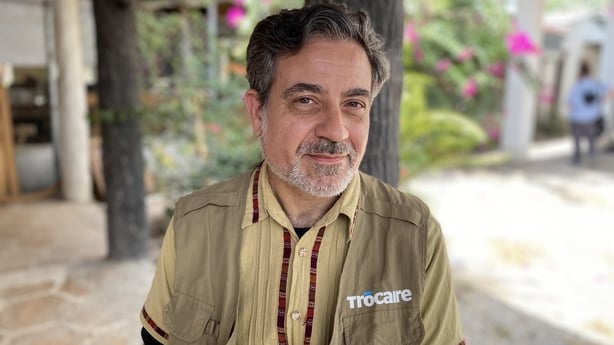
"Many organisations are laying off staff and cutting their projects, their programmes," he said.
"In many cases, these programmes were responding to basic needs, like food security, medical care. Really, really basic things that many people's lives were depending on."
Mr Larrerochea said he anticipates this will mean Trócaire will receive more requests for assistance.
Trócaire works alongside indigenous Maya communities in Guatemala. Locals have said climate change has pushed them further into poverty and now they do not have enough to feed their children.
According to the World Bank, Guatemala has one of the highest rates of malnutrition in the world. Longer dry seasons and more severe storms have resulted in crop failures in rural villages.
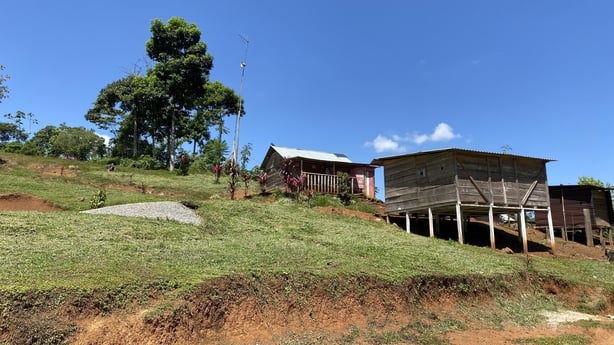
"There is already a big need and with this situation it's getting worse," said Mr Larrerochea.
"And, for sure, Trócaire will be getting more demand for supports. It's very important to keep support to these vulnerable communities."
One such community is La Paz, a remote village in central Guatemala. It is home to 24 Maya Q’eqchi families. The indigenous people who are raising families and growing crops there are experiencing the sharp edge of the climate crisis.
"We don't have any maize, we can't harvest maize anymore because of climate change," said 65-year-old Dolores Cajbom.
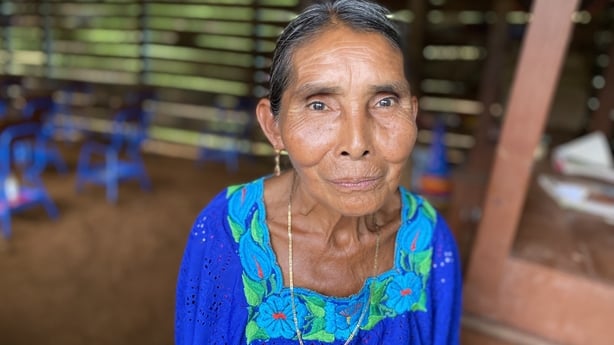
Ms Cajom said heavy rains have pushed the maize crop underground, where it rots, and they do not have enough to feed their families.
"I think the world is coming to an end, God is punishing us in some way."
Her husband was killed in the country's violent armed conflict 40 years ago, during which government forces killed indigenous people and 'disappeared' their remains.
Ms Cajbom's community is called La Paz because it means "peace". It was supposed to be a place of refuge but now the community is facing a different kind of existential threat.
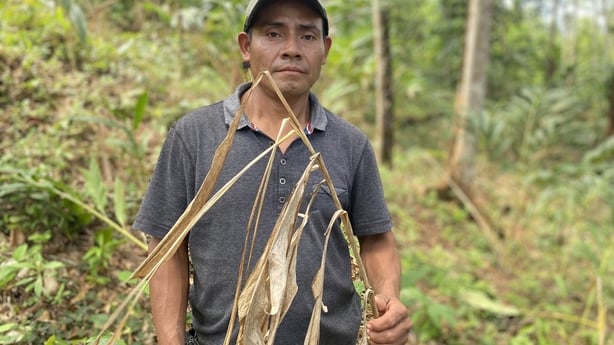
Father-of-four Julio Paau Quib said his cardamom crop has failed for yet another year.
He used to sell this to make money for his family. But now, if the more frequent storms and floods do not destroy crops, the longer dry season will kill them.
Mr Paau Quib is now forced travel to other regions of Guatemala to look for work just to put food on the family table.
His wife, Ilma, now keeps some turkeys in an effort to boost the family's food supply. The community has traditionally relied on subsistence farming.
They did little to contribute to the climate crisis but are suffering from its effects. When asked if she feels a sense of injustice about this, her answer comes without hesitation.
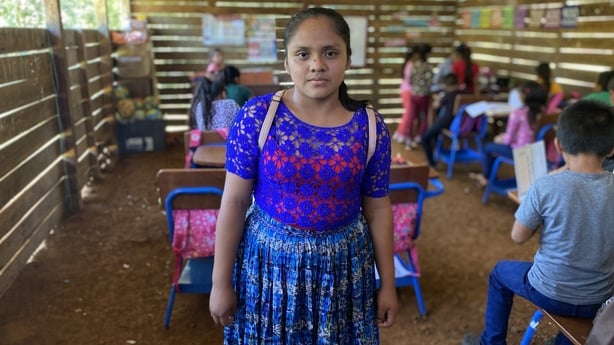
"I don't think it's fair," she said. "It's not just affecting my family, it's the community as well. Not just because of the lack of food – we have diseases. Sickness, diarrhea, fever, coughing, in the children."
The family's eldest daughter Miriam has started secondary school. The 13-year-old likes maths and wants to become a teacher or engineer.
However, her parents worry they will not have money for Miriam to complete her education. They have to pay for a bus to take her to school. If the crops fail again, it will be a struggle to scrape this money together.
The community has a small one-room school where the village's children can receive primary education.
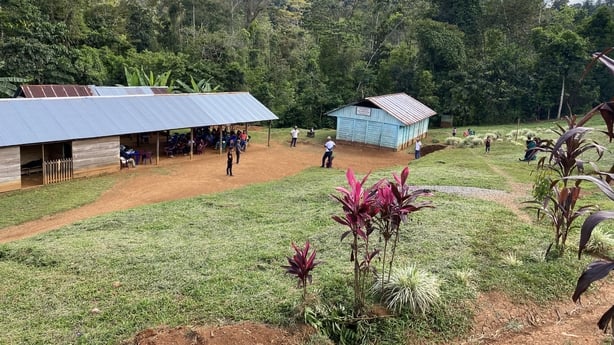
As climate change pushes more families further into poverty, it becomes more likely many children will not be educated past the age of 12.
Teacher Sara Lem Hernandez believes La Paz receives little assistance from the Guatemalan government. She said she uses her own money to pay for many of the school resources and pays for her own transport to travel two hours each way to work here.
As a teacher, she said she is "frustrated".
As an example, she said she is trying to help six children in a nearby community who want to come to school but cannot pay for a bus to get there. She said she is trying to source bicycles for the children so they can continue their education.
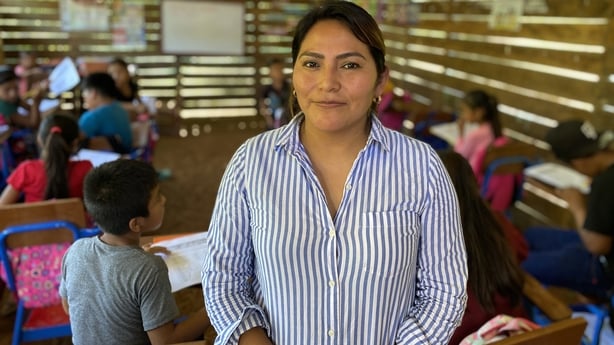
Ms Hernandez said she is also frustrated with the state of the school facilities. It is a simple wooden structure with an earth floor. When it rains heavily, the roof leaks and the ground becomes too muddy to walk on.
The La Paz community, along with Trócaire and a local partner organisation, is working on a plan to improve the school building.
Trócaire has also supported initiatives that help the community adapt to climate disasters. A wooden footbridge built five years ago means people can safely evacuate the area when flood waters rise. Previously, the village was only accessible via a small wooden boat.
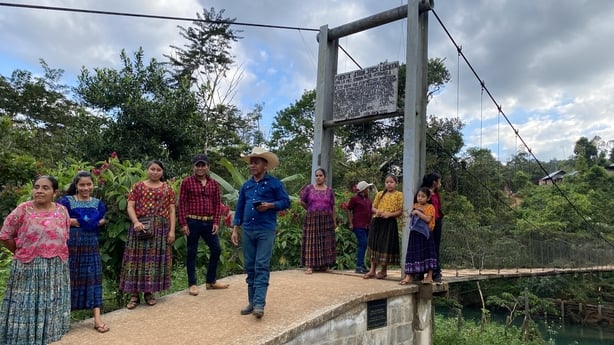
Radio equipment and an early warning system mean people are more able to escape the worst effects of flooding.
A gender equality programme has aimed to empower more women in the community to become involved in decision making regarding disaster relief.
While life may have become harder in La Paz, the community's spiritual leader, Leonardo Cajbom, said the people are resilient.
He said they have survived a brutal civil war and has some hope they can mitigate the worst effects of climate change.
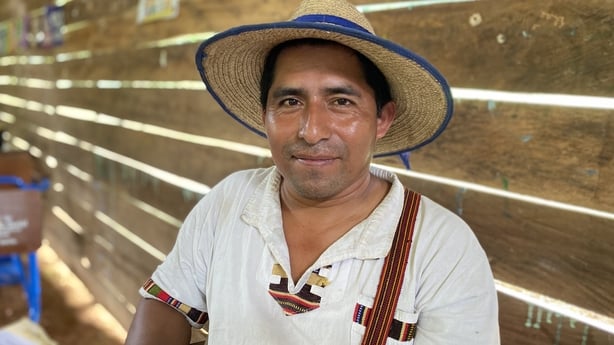
"In the conflict, humans suffered because they were killed. Now with climate change, it's for certain periods of time, but still, they can protect themselves," he said.
"During the conflict, you were not able to protect yourself because they used to hide into caves, and they used to kill you so you were not able to protect yourself."
However, if the current trajectory continues, Mr Cajbom has a warning for richer countries that are yet to feel the force of the climate crisis.
"I think, in 2028, global warming will increase a lot more than it is right now. And in 2045, it will be a lot of suffering, and it will cause a lot of damage globally."







